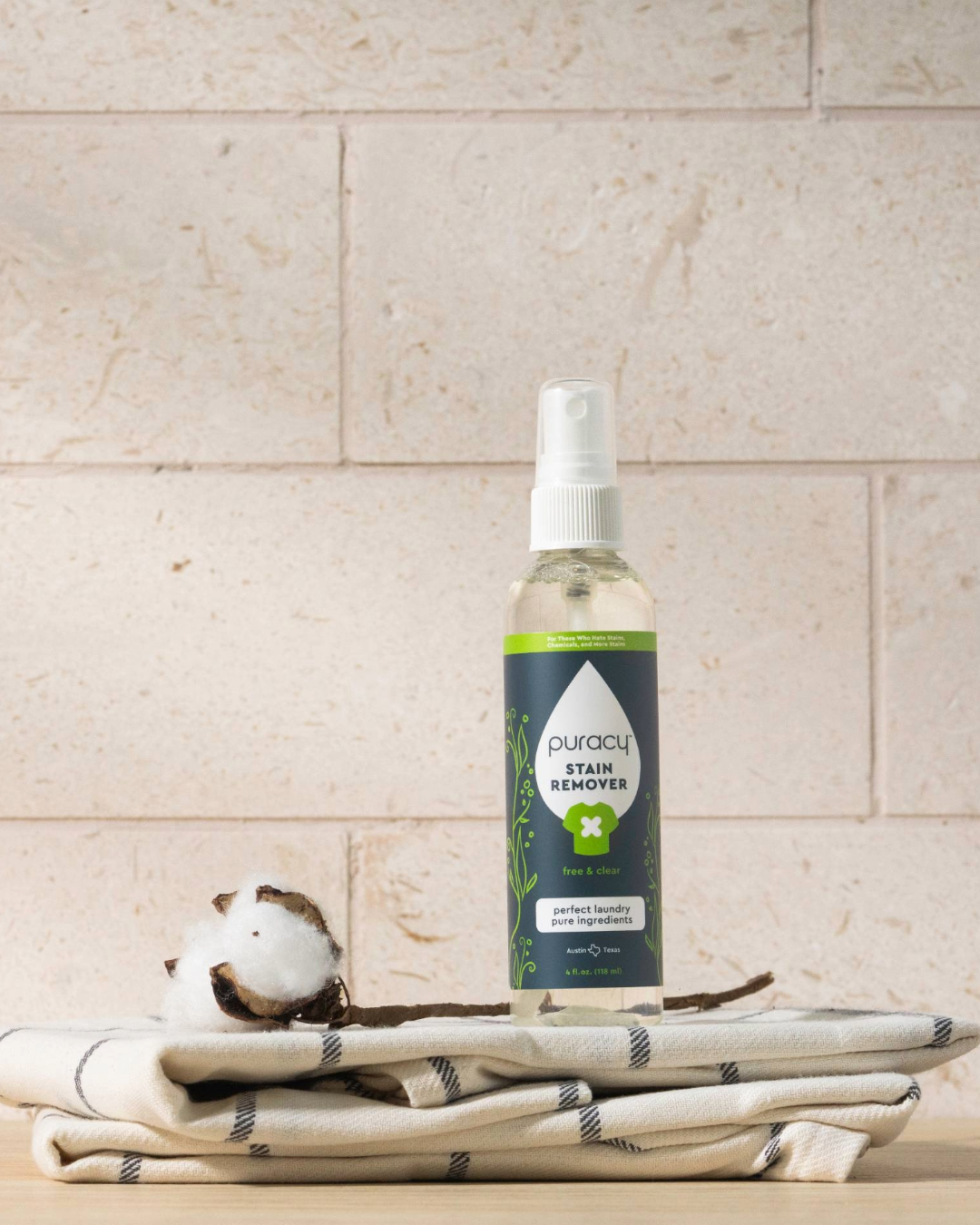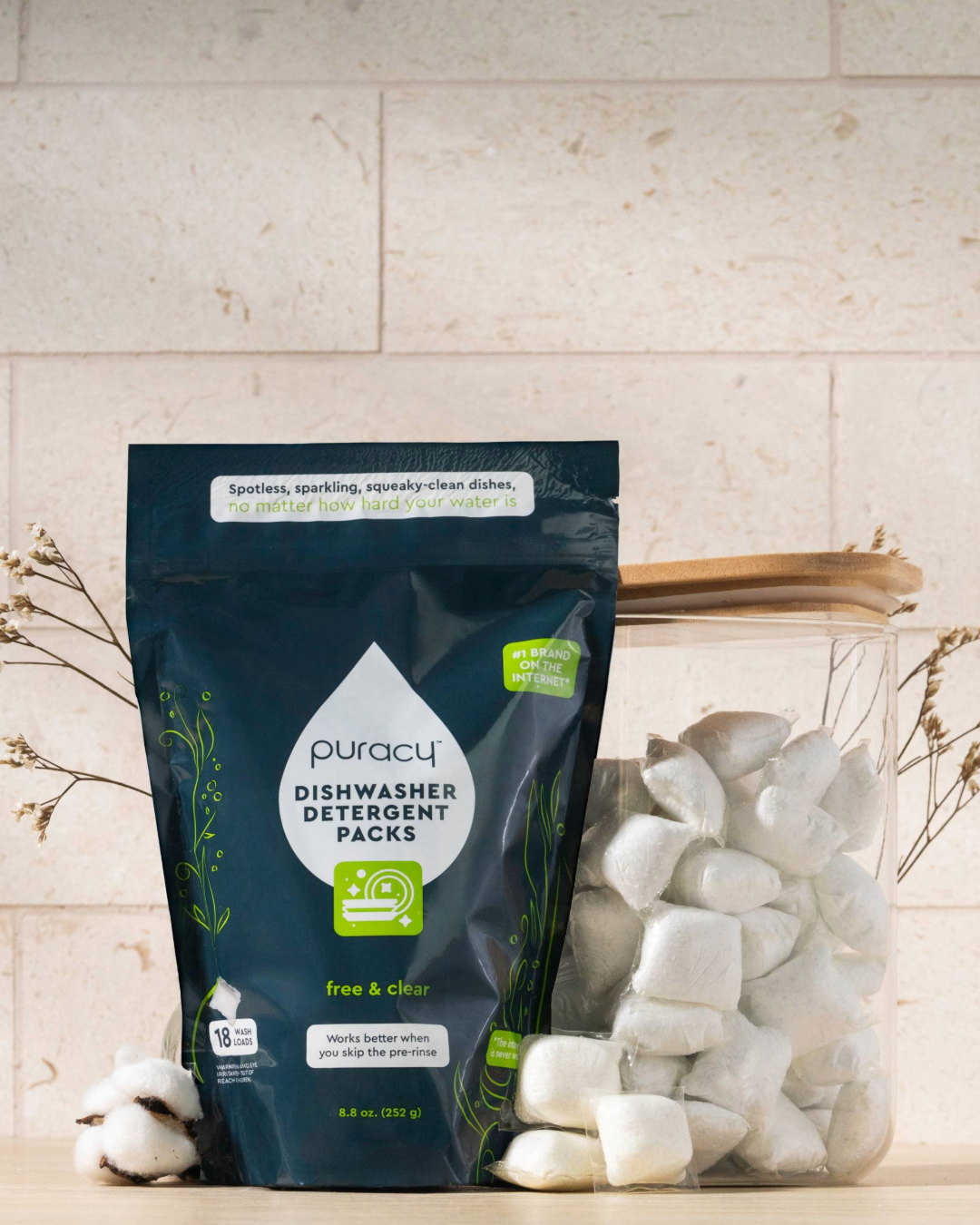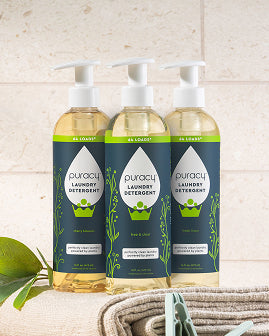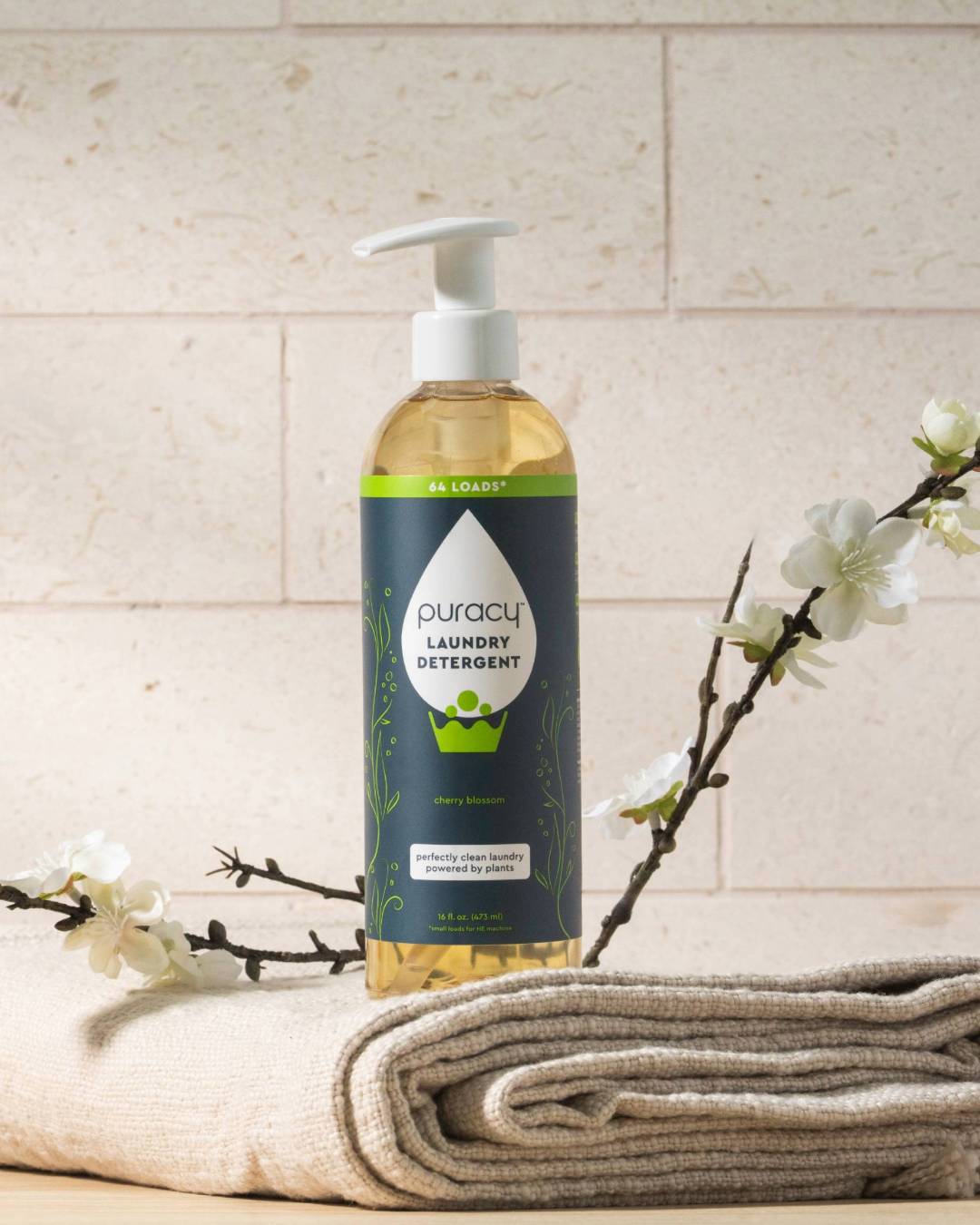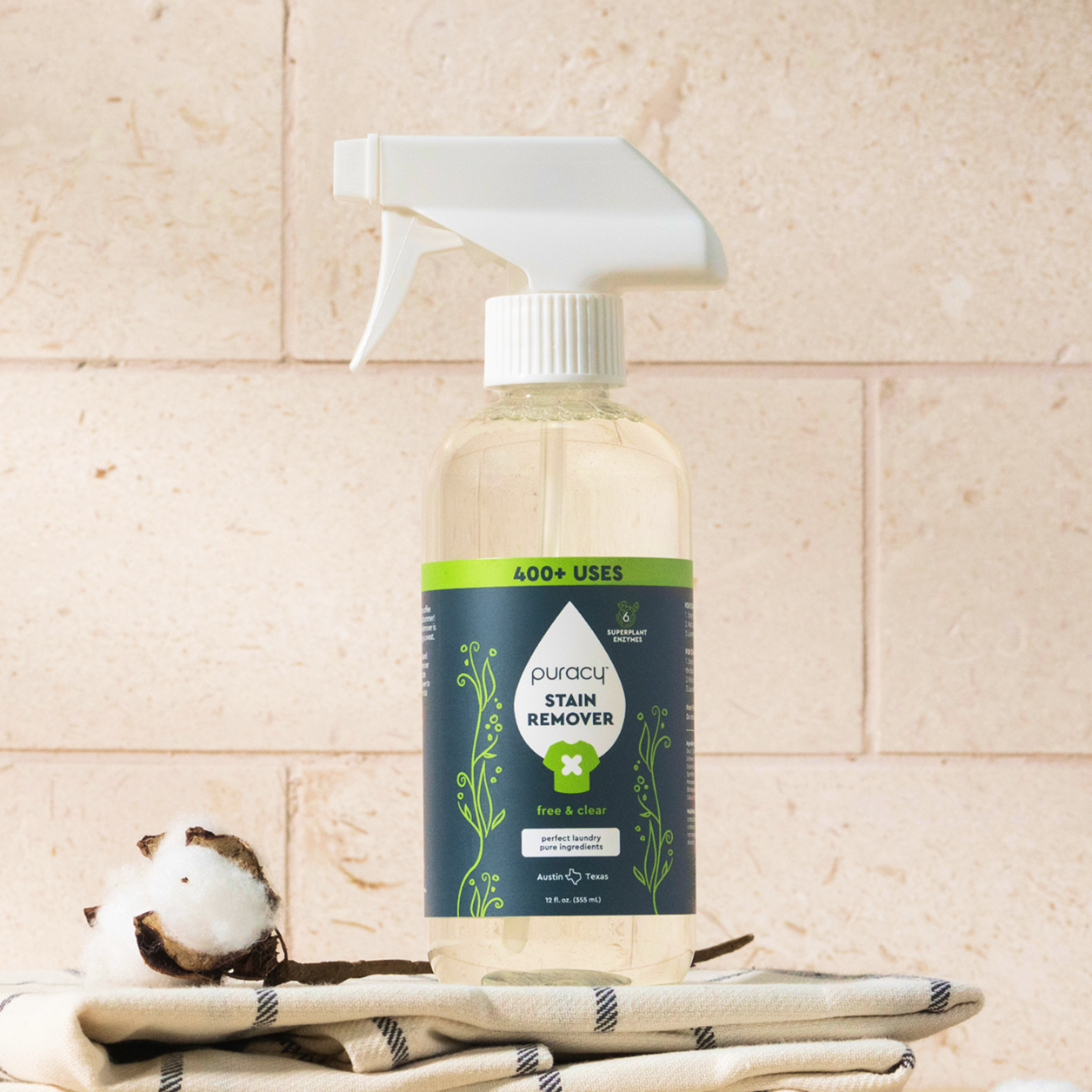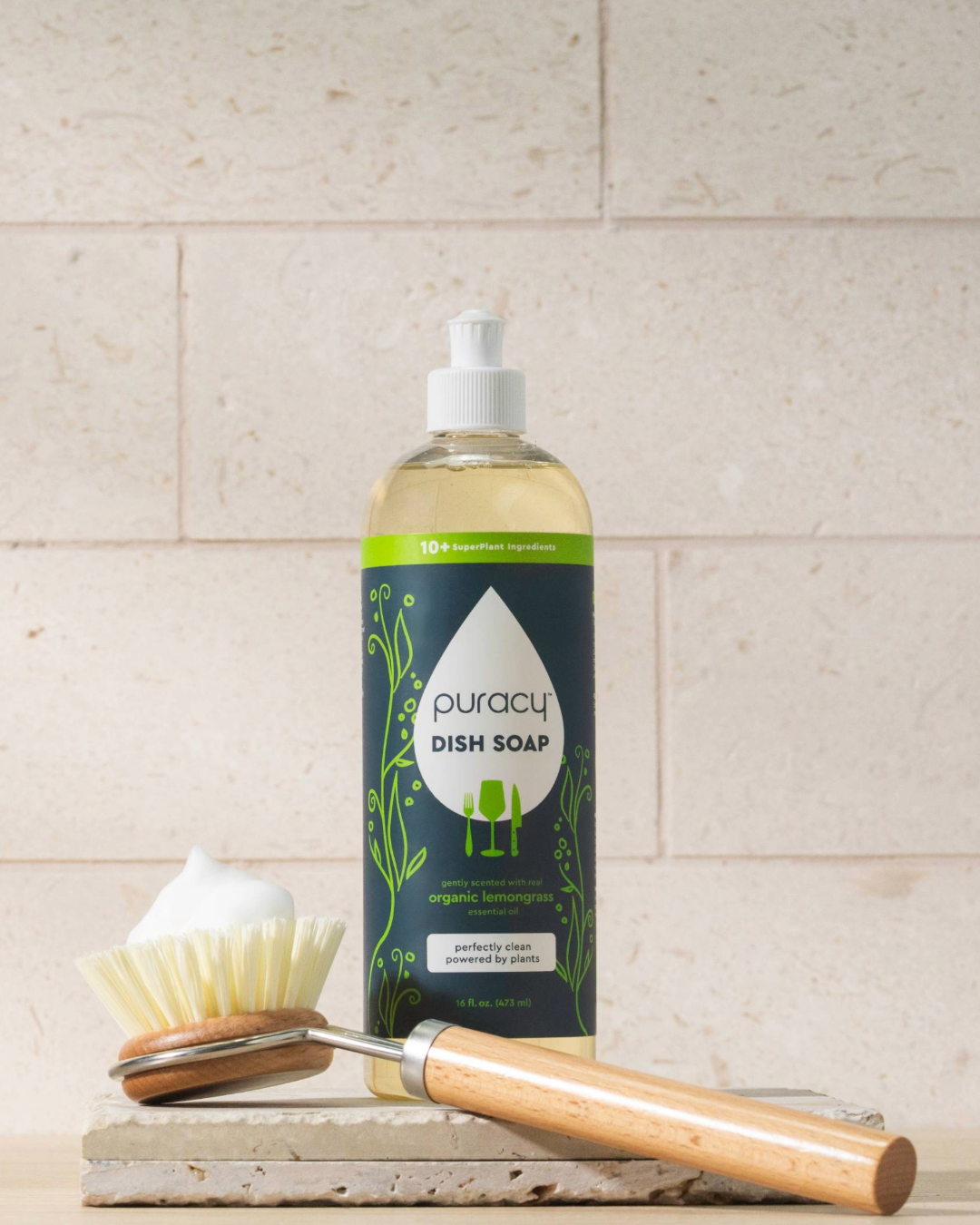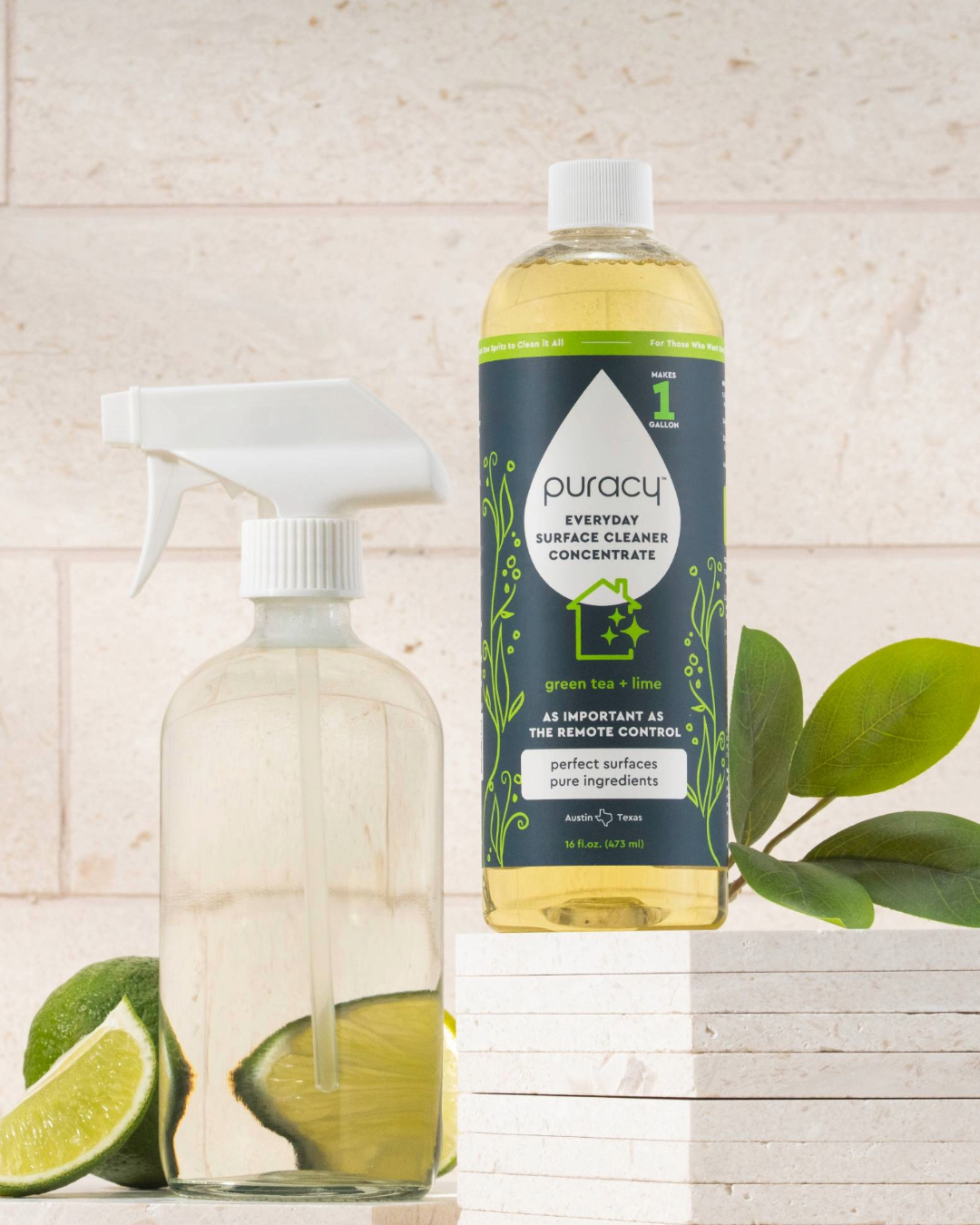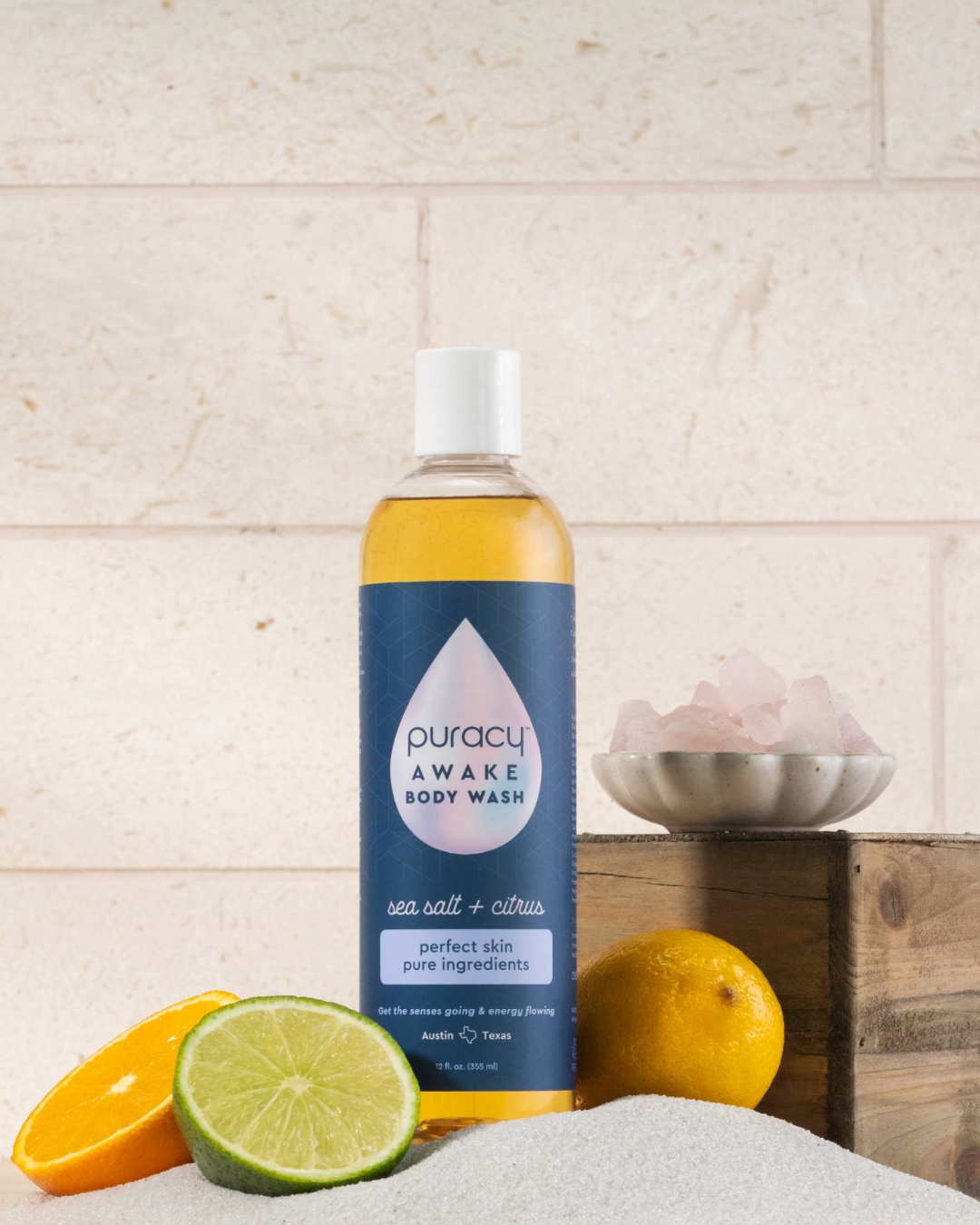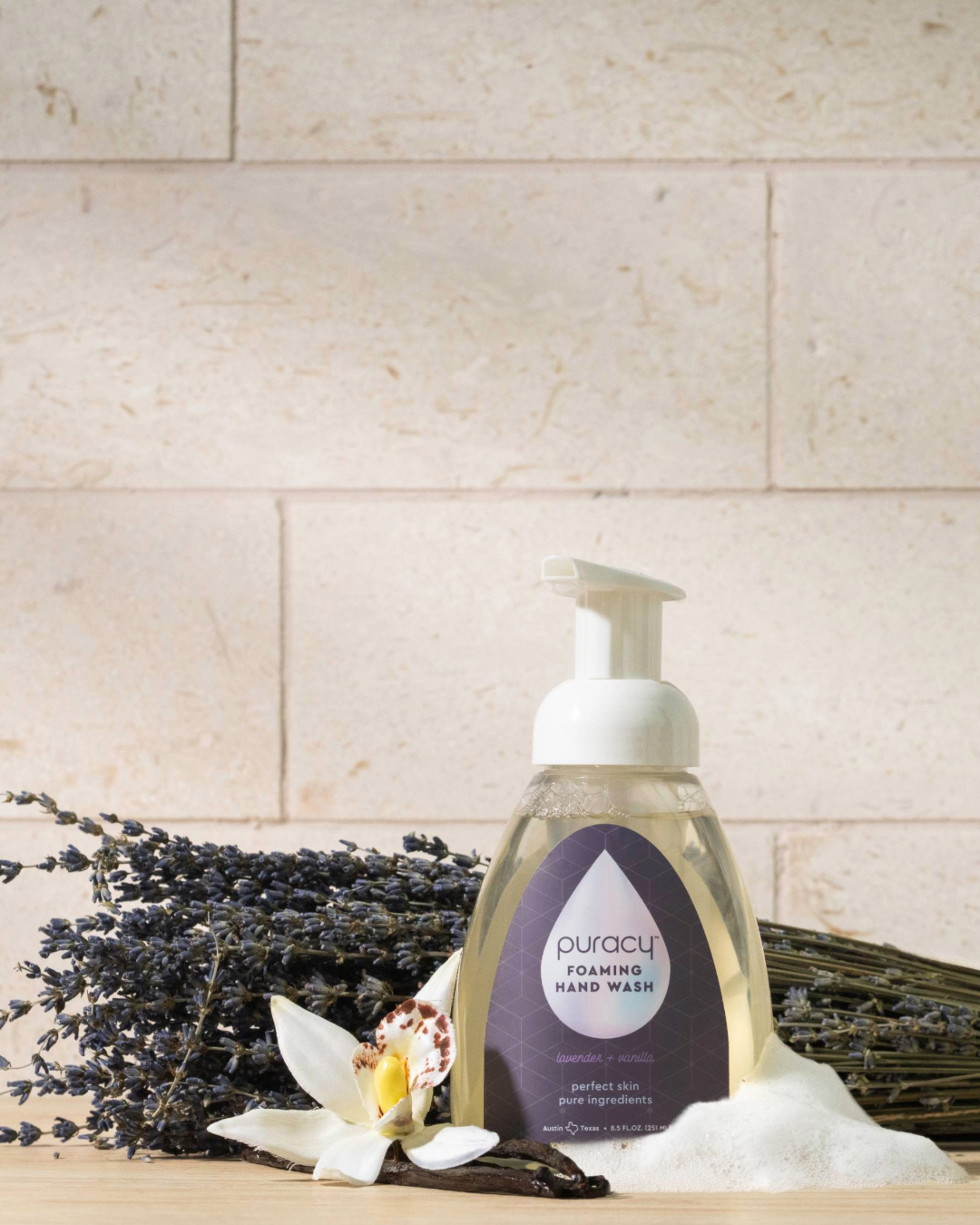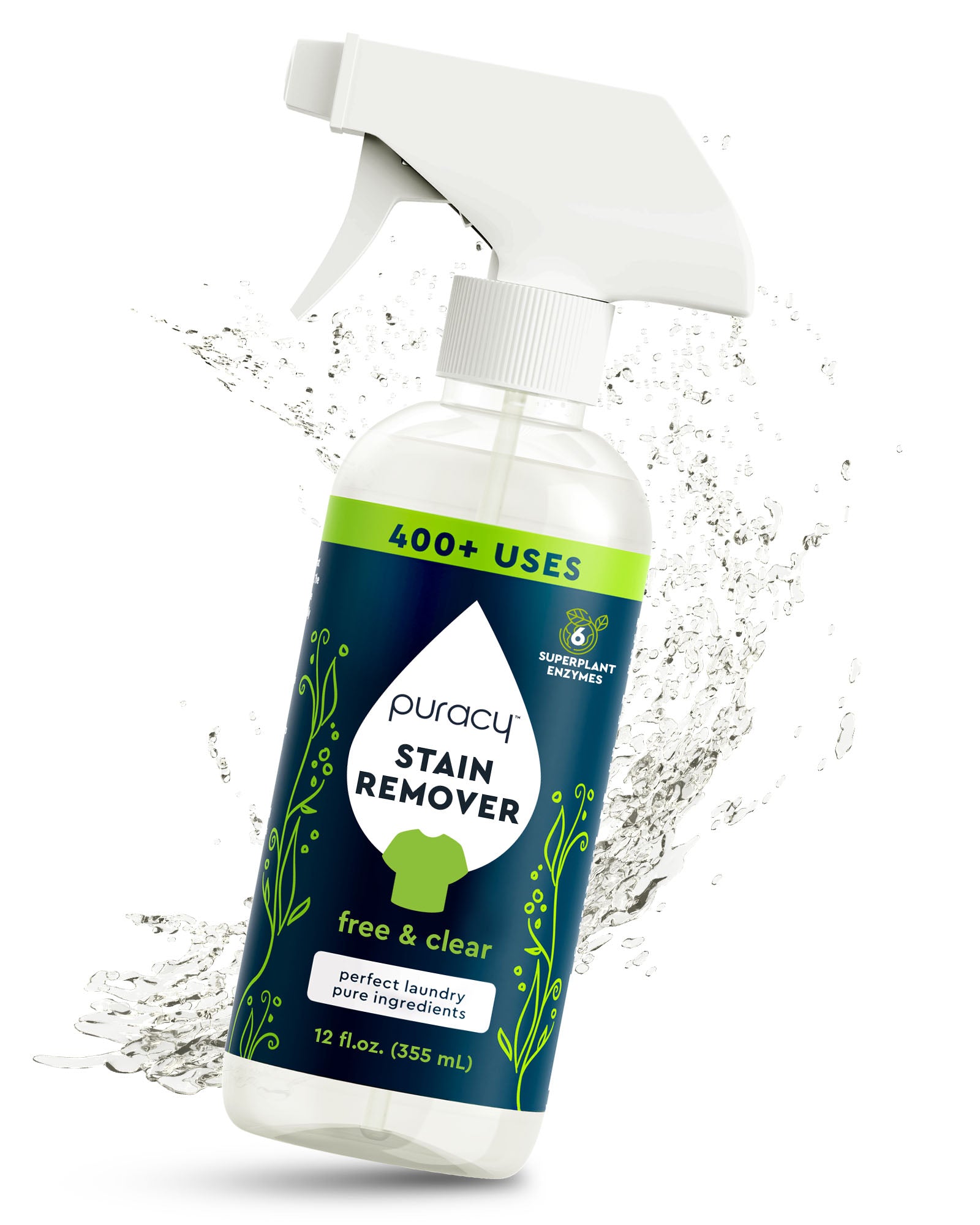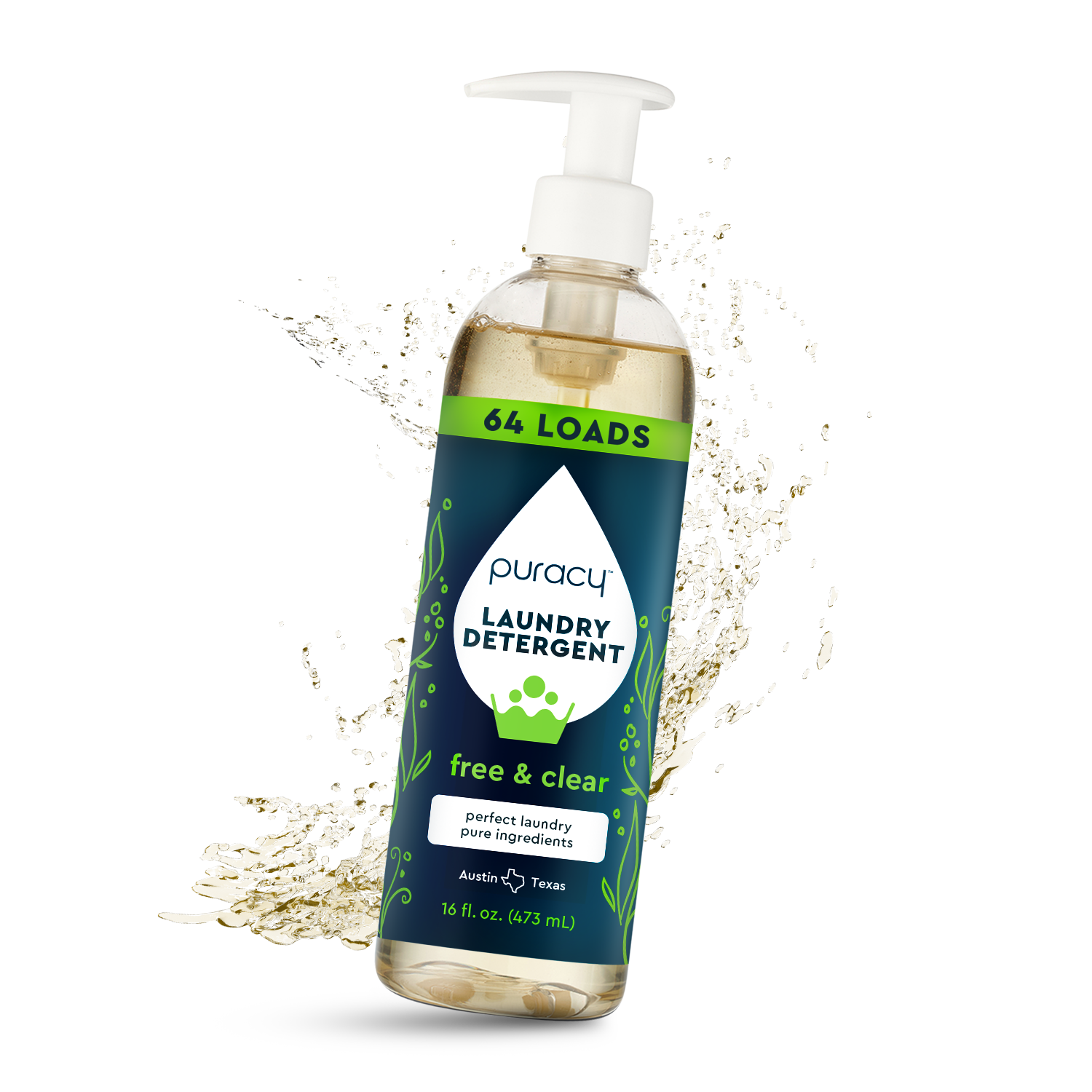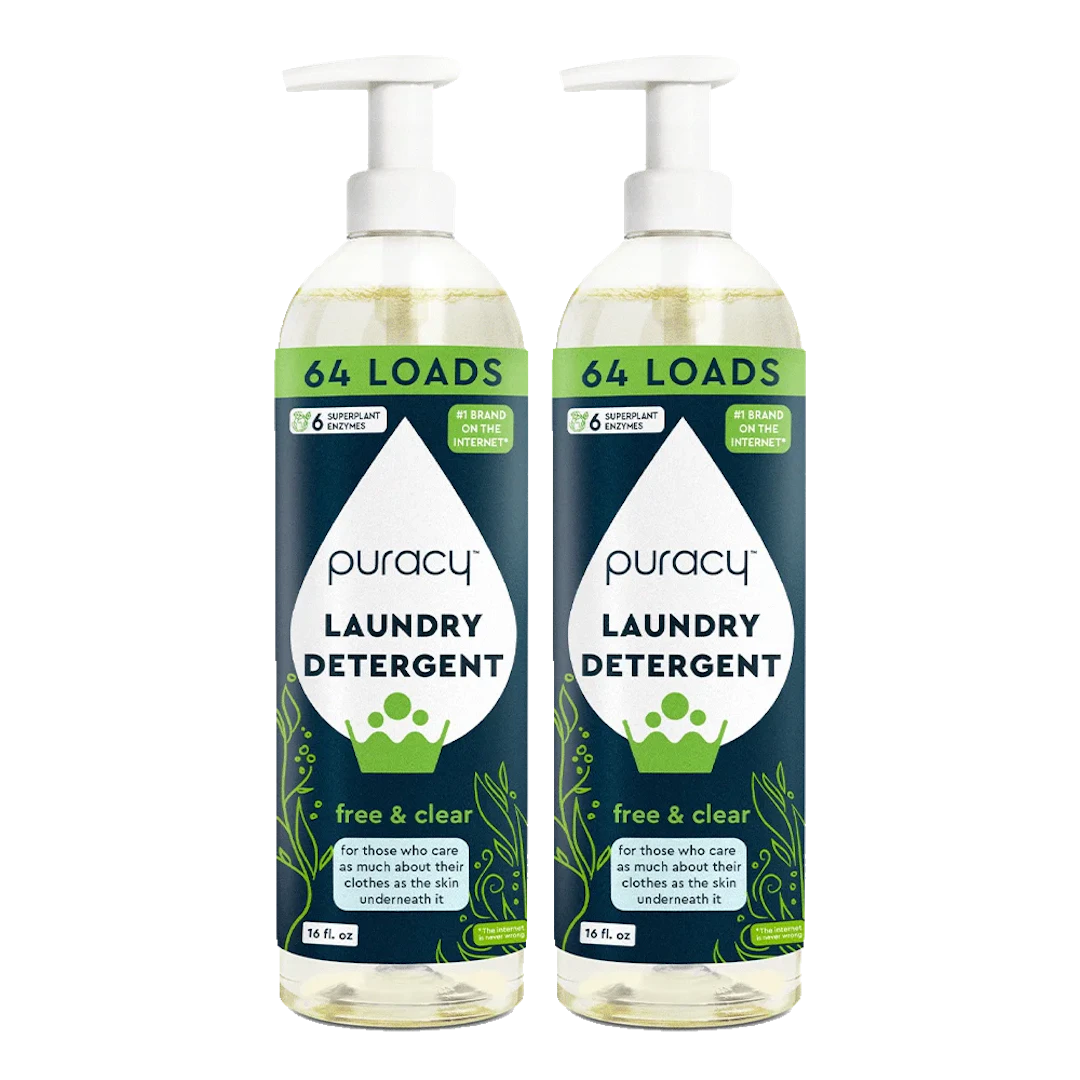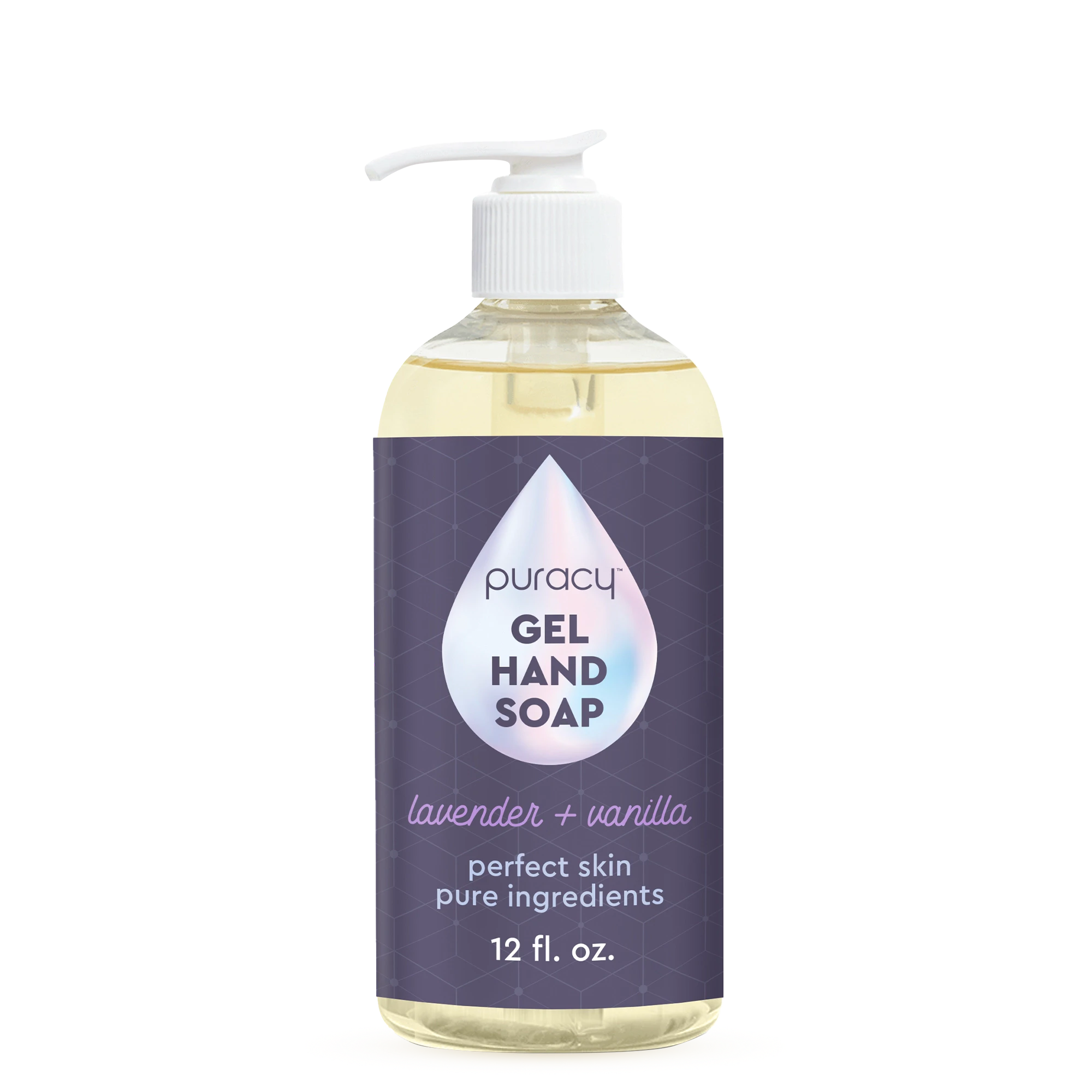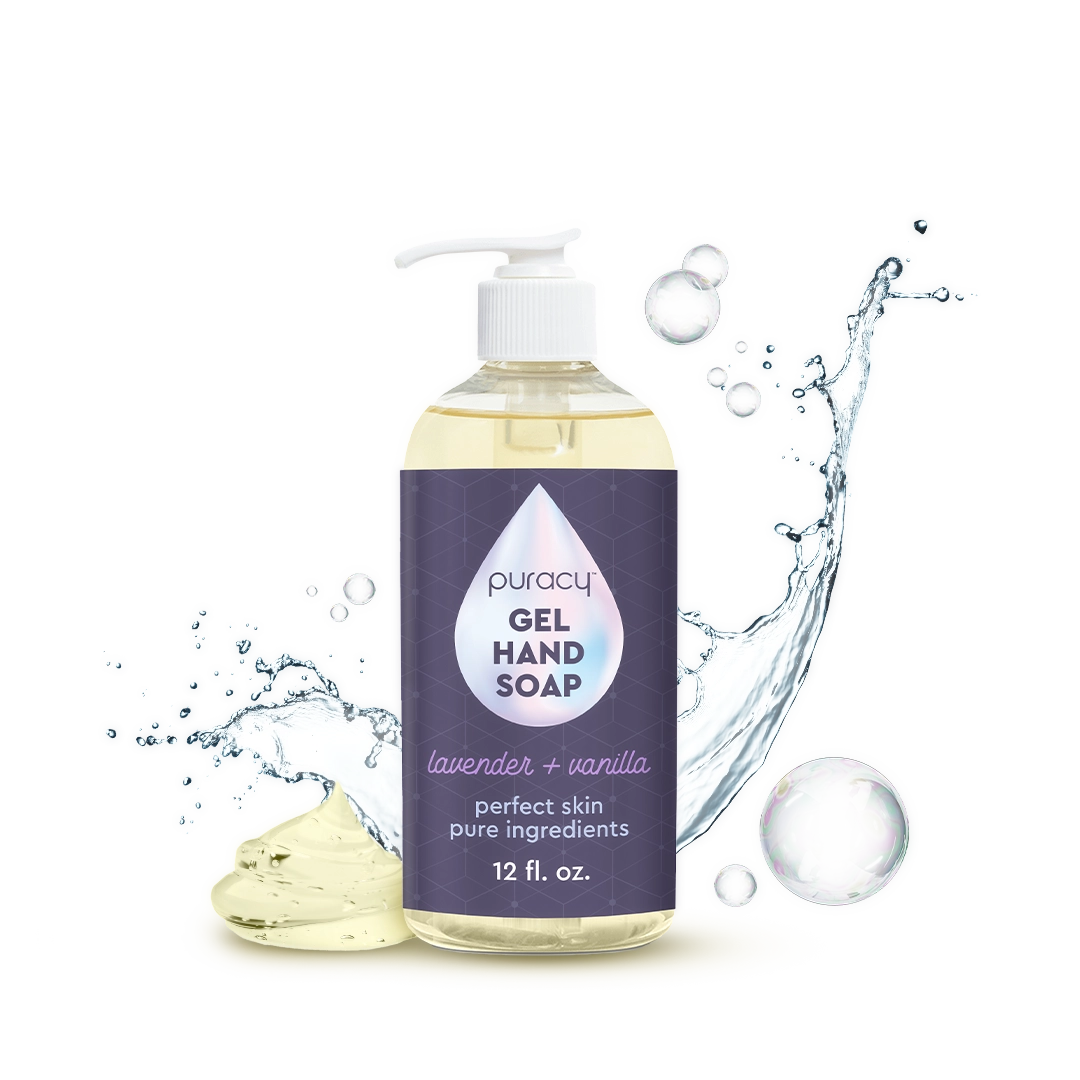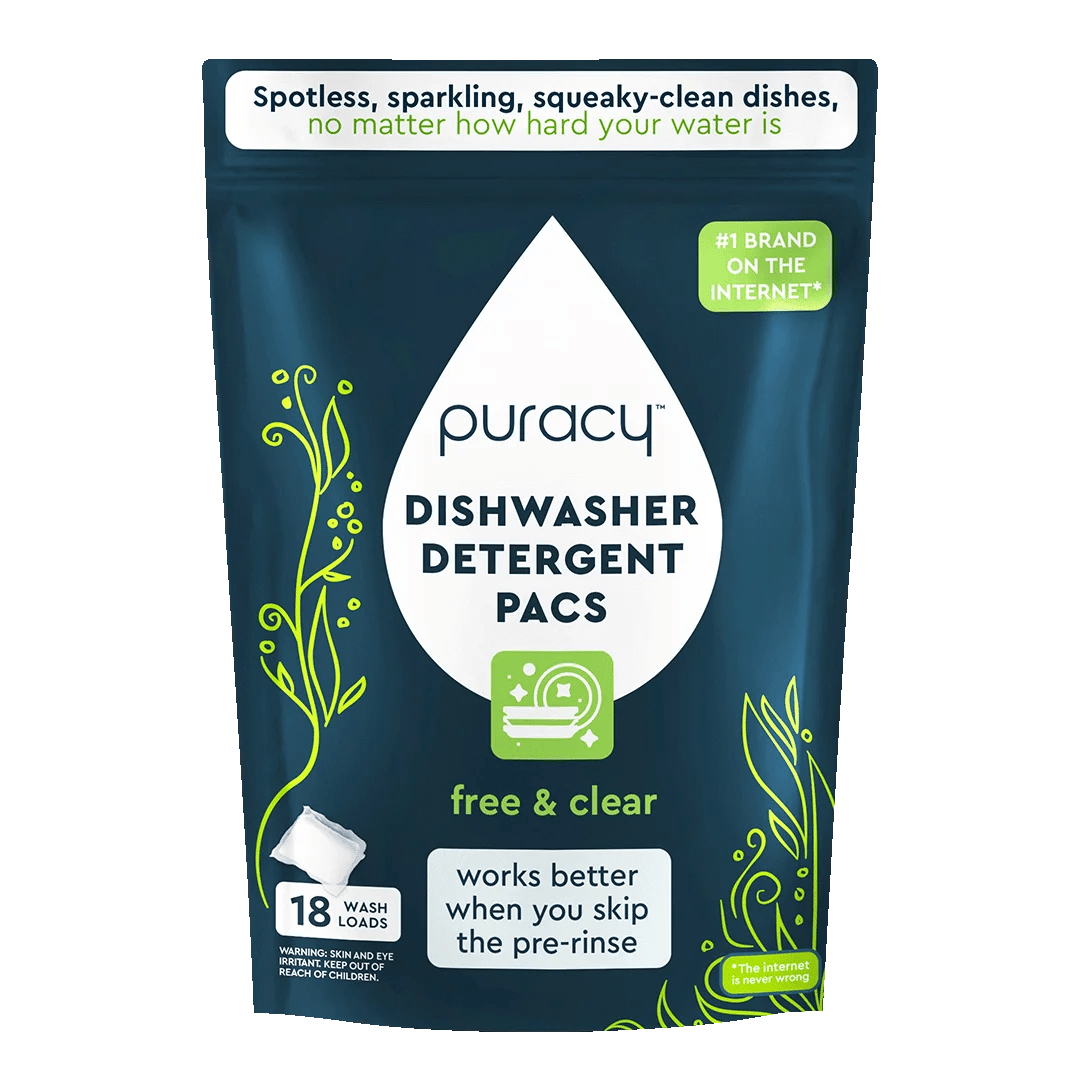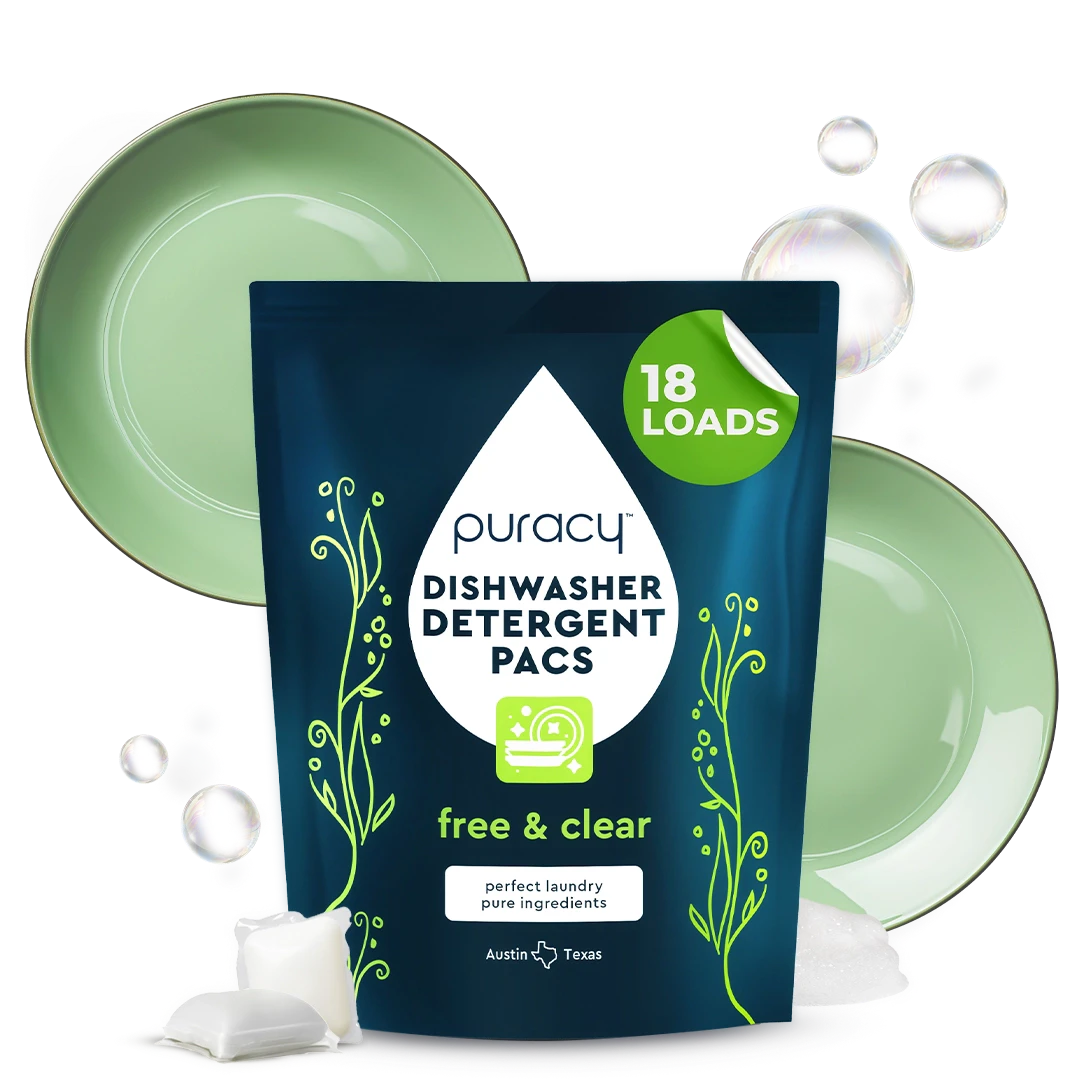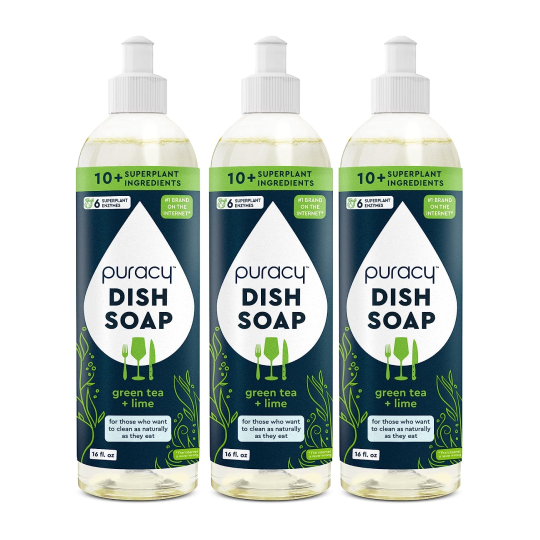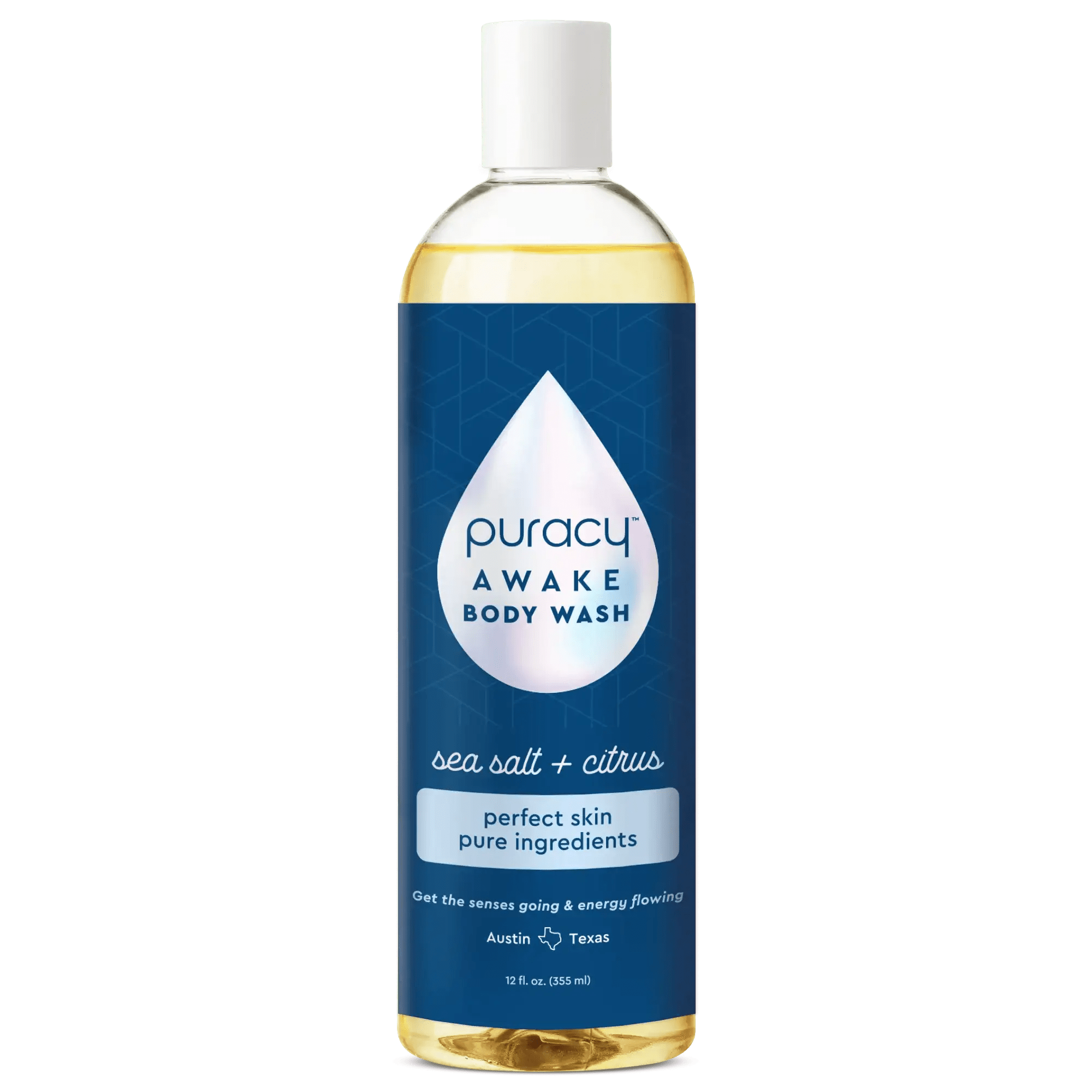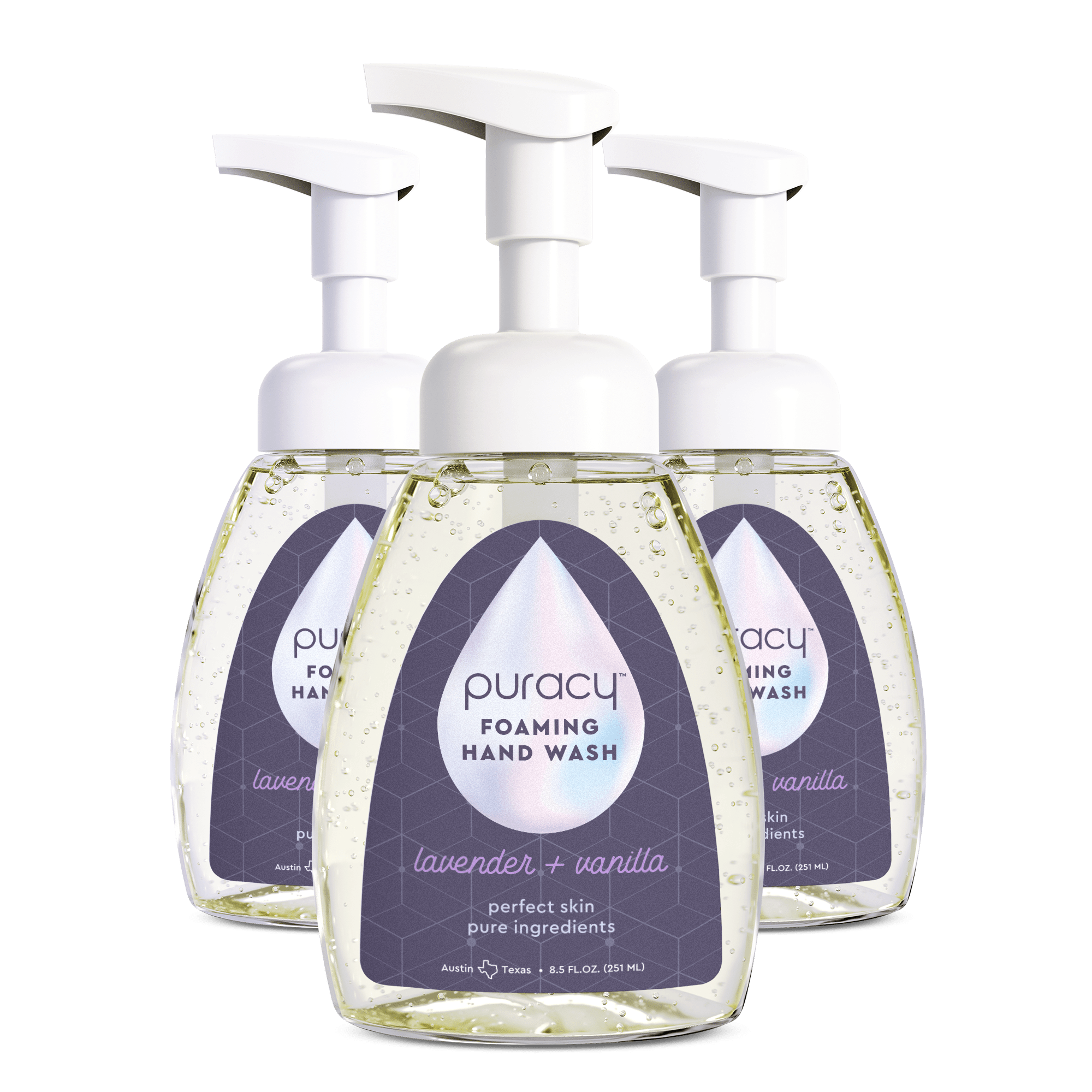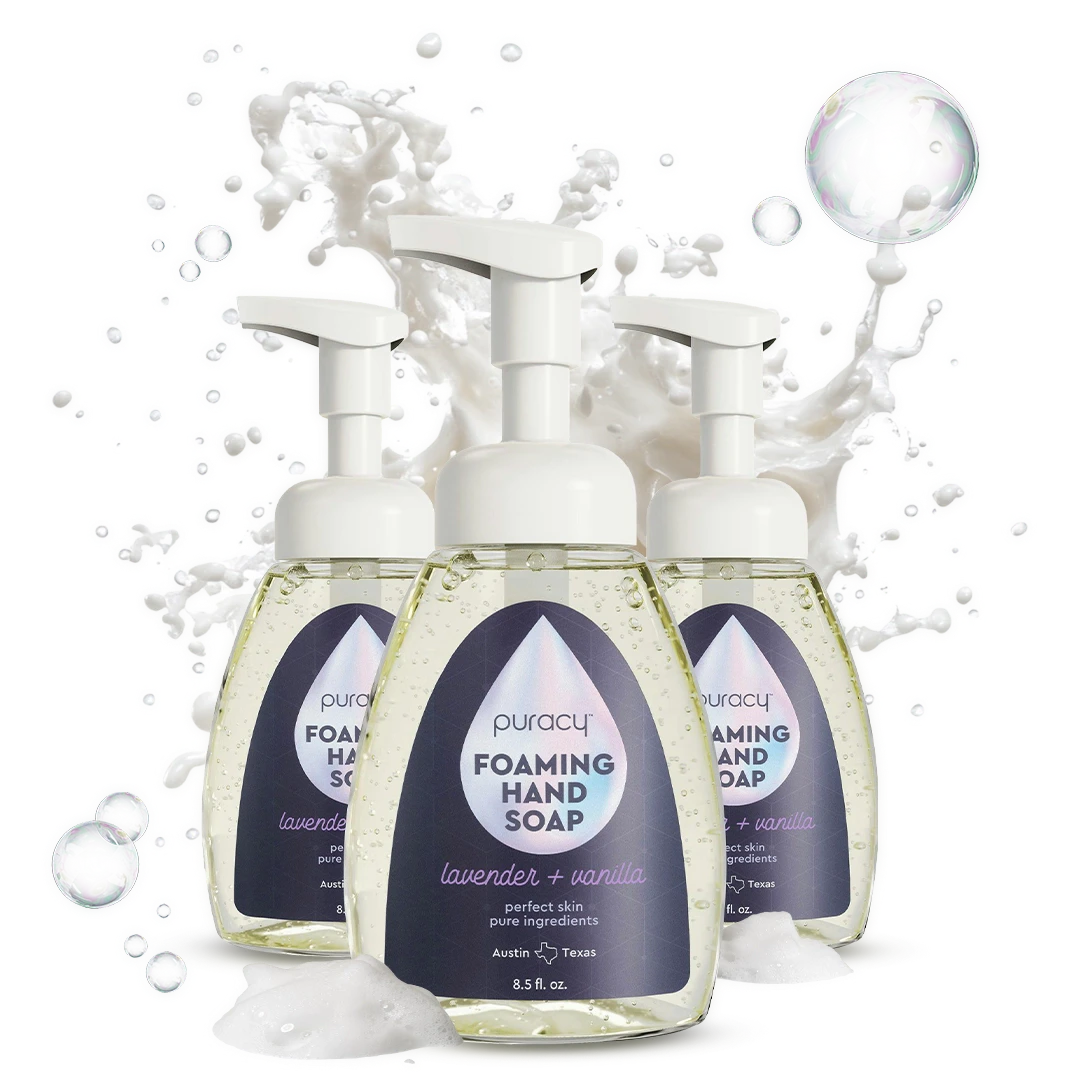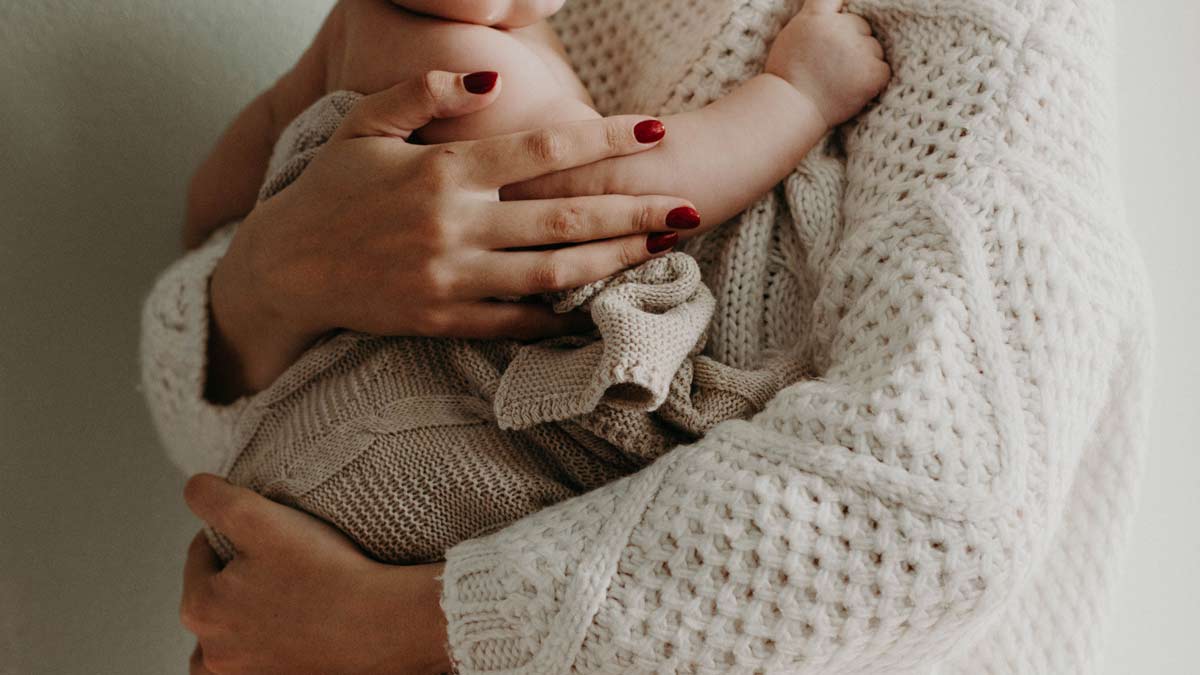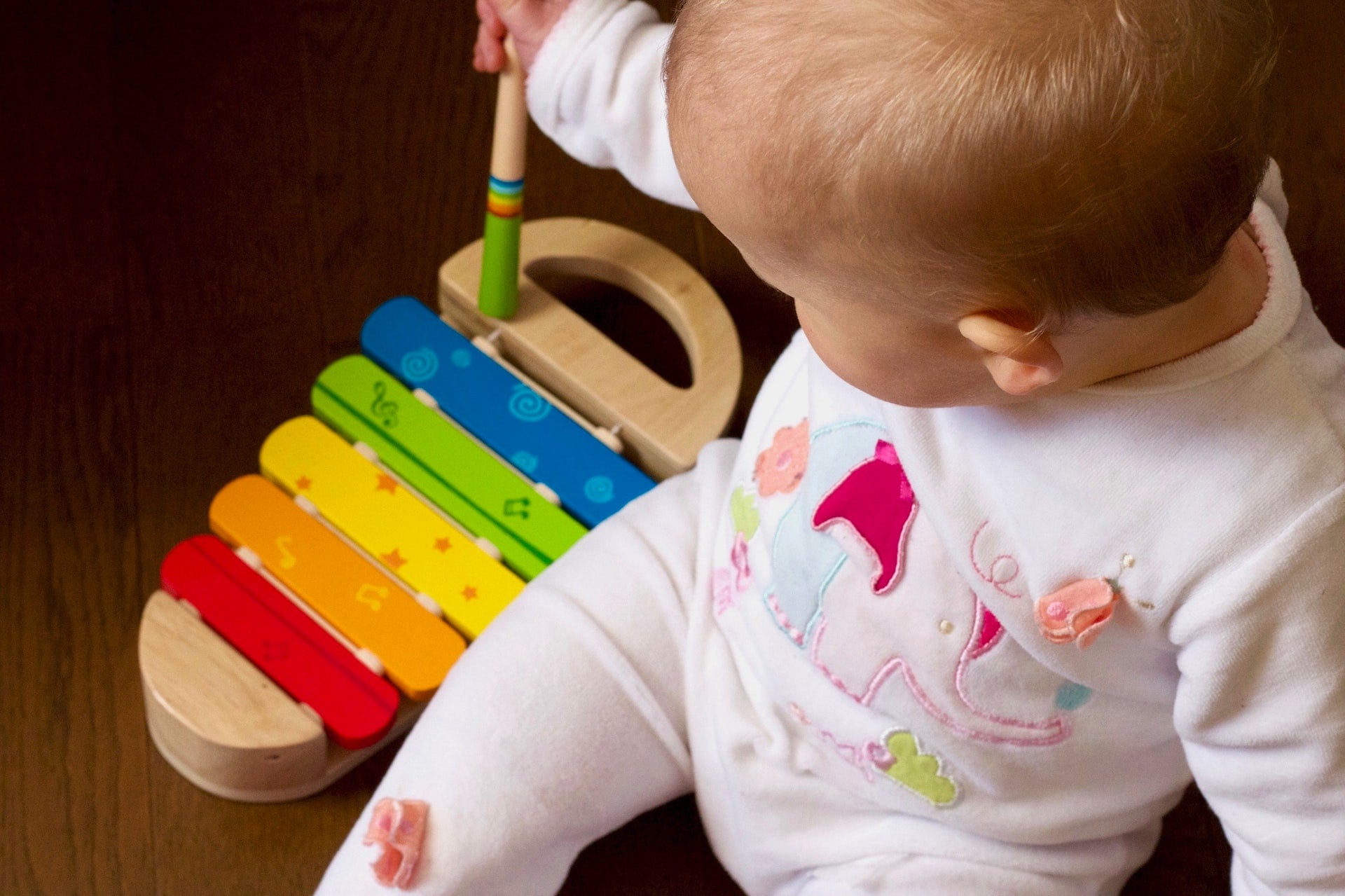
15 Tips for an Eco-Friendly Pregnancy
Pregnancy is an exciting, overwhelming time, and as you wait for your little one to arrive, you may be thinking of how to make this experience as eco-friendly and sustainable as possible. As your baby bump grows, so will your awareness of what you put in, on, and around your body. What's safe for the planet is generally healthy for you and your growing baby.
Whether you're already following a “green routine” or are just getting started on your journey, the following tips should help plant the seeds for a healthier, eco-friendly pregnancy.
1. Follow a Healthy Pregnancy Diet

When you're pregnant, it's easy to feel discouraged by the foods you can't have. Instead, try to focus on the healthy foods for pregnancy that nourish and satisfy. Also avoid produce grown with artificial pesticides (which has been linked to birth defects). If you have gestational diabetes or other dietary restrictions during your pregnancy, you may feel like your options for satisfying meals are limited, but with the wealth of online recipes at our disposal, our options have greatly increased. You can find healthy recipes that use natural, organic ingredients while still being hearty and satisfying thanks to sites like Eating Well and What to Expect.
Whether shopping at your local farmers' market or planting a small herb garden, eating a plethora of organic, in-season picks will leave you, your baby, and the planet healthier.
Plan Healthy Pregnancy Snacks and Meals in Advance

If you have downtime during your parental leave, try to prep baby food, meals, and satisfying snacks to freeze ahead. When the time comes, you'll be grateful for all those nourishing, home-cooked options. There are also services that offer delivery service at your convenience if you don’t have time to prepare it yourself. Just be sure to request that they limit the amount of plastic waste or offer to use your own sustainable food containers.
2. Opt for Sustainable Glass Food Storage

Whether storing excess dried goods or leftovers, glass food storage is a great alternative to plastic (it’s also highly-recyclable).
For decades, scientists have expressed concerns over the dangers of leaked chemicals from plastic, especially BPA (bisphenol A). Even low exposure has been linked to an increased risk of:
If you do stick to plastic, choose sturdy, polypropylene products (e.g. PP, plastic #5) and “BPA-free” containers. Never microwave these plastics and recycle products that are warped or scratched.
3. Read Labels

There are a shocking amount of harsh chemicals used in cleaning and personal care products, like formaldehyde, formaldehyde releasers, triclosan, and glycol ethers.
Did you know that the FDA doesn’t require artificial fragrances to include precise ingredient lists? Your body spray, deodorant, or all-purpose cleaner might actually contain substances like carcinogenic aldehydes or phthalates (that have been linked to reproductive organ malformation in infants).
Stick to trustworthy brands that clearly state their ingredients – and the sustainable sources of those ingredients.
4. Research Nursery & Baby Products

Building a beautiful, eco-friendly nursery isn’t as intense as you might think. From infant-friendly wall paint to Greenguard-certified furniture to eco-friendly baby bottles, our baby arrival checklist lays out how to furnish your home with safe products.
When planning your baby's nursery, look out for certifications such as Greenguard Gold. This certification globally recognizes brands and products that have low chemical emissions. You can also lower a nursery's exposure to chemical pollutants by investing in an air purifier with activated carbon filters, as well as keeping windows open for fresh air circulation.
5. Consider a Green Baby Registry

Planning a baby shower? Whether it's specifically stating a preference for eco-friendly baby products or registering on a site with green options (such as Target), it's a great way to give back to the planet and fill your home with products you trust.
Some registry sites – like SoKind – allow friends and family to donate alternative gifts like designated babysitting time.
6. Upgrade Your Bedding

You're sleeping for two now, so try to avoid synthetic, conventional, permanent-press materials, which are often created with formaldehyde and synthetic dyes. Even standard cotton materials should be purchased with caution, since cotton crops are heavily sprayed with pesticides.
Try to outfit your bed with certified organic, sustainable materials. When shopping for your baby’s bedding, avoid products that use flame retardants and pesticides. Instead, go with organic and/or natural materials. Read a product’s label carefully to ensure the safety of its material, and if you’re not sure, you can always contact a manufacturer directly to find out what a product contains.
7. Select Natural Personal Care Products

Pregnancy skincare can cause acne, facial skin pigmentation, stretch marks...It’s understandable that you want to treat burgeoning conditions quickly and efficiently. But one glance at conventional, drugstore skincare labels will have you looking up every unpronounceable ingredient.
Stick with natural and organic skincare products that are formulated by reputable brands. You shouldn’t have to take your phone out to determine whether ingredients are safe to use.
8. Choose a Natural Laundry Detergent
 Remember the artificial fragrances outlined in #3? You’ll find these in most laundry detergents, too, and you breathe them in when they’re released through dryer vents.
Remember the artificial fragrances outlined in #3? You’ll find these in most laundry detergents, too, and you breathe them in when they’re released through dryer vents.
It’s never too late to start laundering your clothes with a natural laundry detergent that’s formulated with plant-derived, biodegradable ingredients.
Whiten Clothes Without Using Bleach

While it’s important to keep whites bright, there are tons of natural bleach alternatives. Try pre-soaking with vinegar or hanging clothes out to dry. We recommend targeting stains with Puracy Natural Stain Remover. Loaded with six plant-based enzymes, our natural laundry product is guaranteed to safely remove any fabric stain.
9. Find Safe Cleaning Products for Pregnancy

We don’t have to tell you that household cleaners tend to be filled with harsh, toxic chemicals, from ammonia to sulfuric acid to VOCs (which can be released into the air even when they’re not being used).
From removing spit-up on rockers to messes on changing tables, Puracy cleaning products are biodegradable, effective, and never compromise the health of you and your family. We use natural & safe ingredients to make wonderfully effective products. Learn more about our ingredients and why we call them natural and safe.
10. Self Care Can Be Eco-Friendly

Pregnancy is exhausting and you deserve some good, old-fashioned pampering. Whether you steep indulgent herbal tea, draw up a natural bubble bath, or get a prenatal massage, taking care of yourself is incredibly important.
But before you jump into that bath, remember to avoid lighting paraffin-scented candles (which can release carcinogens). Instead, use natural blends like soy or beeswax.
11. Embrace Second Hand Furniture and Clothing

When it comes to planning an eco-friendly pregnancy, going second hand is the best place to start. Join local Facebook or Nextdoor motherhood groups to be made aware of upcoming clothing or baby item swaps. Maternity clothing generally doesn’t have to be bought new if you join a community of expectant mothers or have family members who can pass on their maternity wardrobe once they’re finished. Sustainable maternity clothing is the way to go!
When it comes to secondhand baby gear, you can also check out websites such as Stork Exchange and Rebelstork for items such as secondhand cribs, toys, and clothing. Be sure to look for non-toxic toys when shopping for your baby’s nursery as well.
12. Consider Reusable Diapers

As you plan for your baby’s arrival during your pregnancy, you may make the eco-friendly choice to opt for reusable diapers. Disposable diapers require more raw materials to produce and take much longer to decompose, so more and more families are making the choice to use cloth diapers to reduce their environmental impact and move towards sustainability.
But even cloth diapers can leave their impact on the environment. Don't know where to start when it comes to choosing reusable diapers? Check out our intensive guide to choosing the right cloth diaper for your baby.
13. Choose a Food-Based Prenatal Vitamin

A prenatal vitamin is essential to most pregnant daily routines, and more and more mothers are opting for food-based options. These vitamins are more easily absorbed and gentle on stomachs, as they contain less synthetic ingredients.
Interested in adding a food-based prenatal vitamin to your eco-friendly pregnancy routine? Discuss options with your doctor to see which option works best for your body's needs.
14. Reduce Plastic Waste

New parents make plans to make the best decisions for a baby's health and education, but why not plan for their impact on the environment as well? Being mindful when it comes to plastic use means seeking out sustainable alternatives when it comes to diapers, toys, and other baby gear. Check out our guide to reducing plastic waste for a few useful places to get started.
And when it comes to your Puracy cleaning products, you don’t need to worry. We use packaging that is simple and easy to recycle at your local recycling center. Our bottles, pumps, sprayers, and caps are all made from Polyethylene Terephthalate, which is commonly known as PET(E), an inert plastic that does not leach harmful materials into its contents and does not contain Bis-phenol A (BPA). It is globally recognized as a safe, non-toxic, strong, reusable material that is 100% recyclable. In fact, it is the most widely recycled plastic in the world!
15. Pass On the Knowledge (and Supplies) to a Pregnant Friend

Plan Your Eco Friendly Pregnancy (& Baby Registry) with Puracy

Pregnancy should be as easy and relaxing as possible, so trust Puracy when it comes to choosing safe, gentle, and effective cleaning products for your home and future baby. Puracy is dedicated to providing the gentlest most effective natural baby products and plant-based home cleaners anywhere, as well as moving towards sustainable packaging. Our ingredient lists are transparent, and we work with PhD chemists and pediatricians to develop formulas that are safe for every member of your family.
